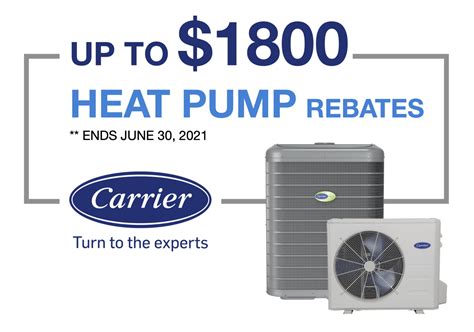As winter approaches, the chill in the air serves as a reminder of rising heating costs. For homeowners seeking efficient solutions, heat pumps have emerged as an energy-saving alternative. To bolster the adoption of these eco-friendly systems, the federal government has introduced new rebates aimed at making heat pumps more accessible. This article delves into what heat pumps are, how they work, and the benefits of the federal rebates designed to help you save big on heating costs.
What is a Heat Pump?
A heat pump is a versatile heating and cooling system that transfers heat from one place to another. In winter, it extracts heat from the outside air—even when it’s cold—and pumps it indoors. In the summer, the process reverses, cooling your home by pulling heat out. This dual functionality makes heat pumps a popular choice for homeowners looking to minimize energy usage and costs.
How Do Heat Pumps Work?
Heat pumps operate through the principles of thermodynamics. They consist of a refrigerant system that absorbs and releases heat as it circulates between the indoor and outdoor units. There are two major types of heat pumps:
- Air-Source Heat Pumps: These are the most common type, using the outside air as a heat source in winter and a heat sink in summer.
- Ground-Source Heat Pumps (Geothermal): These systems draw heat from the ground, which maintains a relatively stable temperature year-round, making them highly efficient.
Benefits of Heat Pumps
Switching to a heat pump comes with several advantages:
- Energy Efficiency: Heat pumps use significantly less energy compared to traditional heating systems, resulting in reduced energy bills.
- Environmental Impact: By using renewable heat sources, heat pumps lower greenhouse gas emissions, promoting a cleaner environment.
- Dual Functionality: With both heating and cooling capabilities, heat pumps eliminate the need for separate air conditioning units.
- Longevity: Properly maintained heat pumps can last 15 years or more, providing you years of reliable service.
New Federal Heat Pump Rebates
In an effort to encourage the transition to energy-efficient heating solutions, the federal government has rolled out new rebates for heat pump installations. Here’s what you need to know:
What Are the Rebates?
The federal rebates provide homeowners with significant financial assistance when installing qualifying heat pump systems. These rebates vary based on the type of heat pump and its efficiency rating. Homeowners can receive rebates to help offset the upfront costs of purchasing and installing a heat pump, making this an appealing option for those looking to upgrade their heating systems.
Eligibility Requirements
To qualify for these rebates, homeowners must meet certain criteria:
- The home must be a primary residence.
- Installation must be performed by a certified professional.
- Heat pumps must meet or exceed specific energy efficiency ratings.
How to Apply for Rebates
The application process typically involves submitting proof of installation along with documentation showing the heat pump’s qualifications. Be sure to consult the official government website for detailed steps and requirements tailored to your state.
How to Maximize Your Heating Savings
While the federal heat pump rebates are a fantastic way to save money, here are additional tips to maximize your savings:
- Schedule a Home Energy Audit: Understanding your home’s energy inefficiencies can help tailor the best heating solutions for your needs.
- Regular Maintenance: Schedule routine maintenance for your heat pump to ensure it operates efficiently and lasts longer.
- Combine with Other Incentives: Look for state or local incentives that can further reduce installation costs.
Conclusion
As energy costs continue to rise, the switch to a heat pump not only offers a sustainable solution but also provides significant financial savings through federal rebates. By investing in a heat pump system now, homeowners stand to benefit from reduced energy bills, a smaller carbon footprint, and increased home comfort. Take the first step towards energy independence and financial savings by exploring how federal heat pump rebates can work for you this winter.
FAQs
1. How much can I expect to save with the new federal heat pump rebates?
The savings can vary based on the type of heat pump you install and your specific circumstances, but many homeowners report savings between $1,000 – $5,000 after applying for rebates.
2. Are heat pumps effective in very cold climates?
Yes, modern heat pumps are designed to be efficient even in colder climates. Newer models can extract heat effectively from outside air down to temperatures as low as -5°F.
3. Can I install a heat pump myself to save on installation costs?
For rebate eligibility and ensure efficient operation, it’s recommended to hire a certified professional for the installation of heat pumps.
4. How long does it take to install a heat pump?
Installation usually takes one to two days, depending on the specifics of your home and the system being installed.
5. Do I need to replace my existing heating system?
Not necessarily. Many homeowners can supplement their existing heating systems with a heat pump. In some cases, it can replace old systems entirely.
Download Heat Pump Rebate Federal
